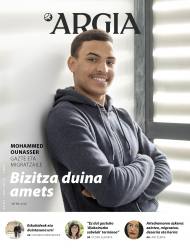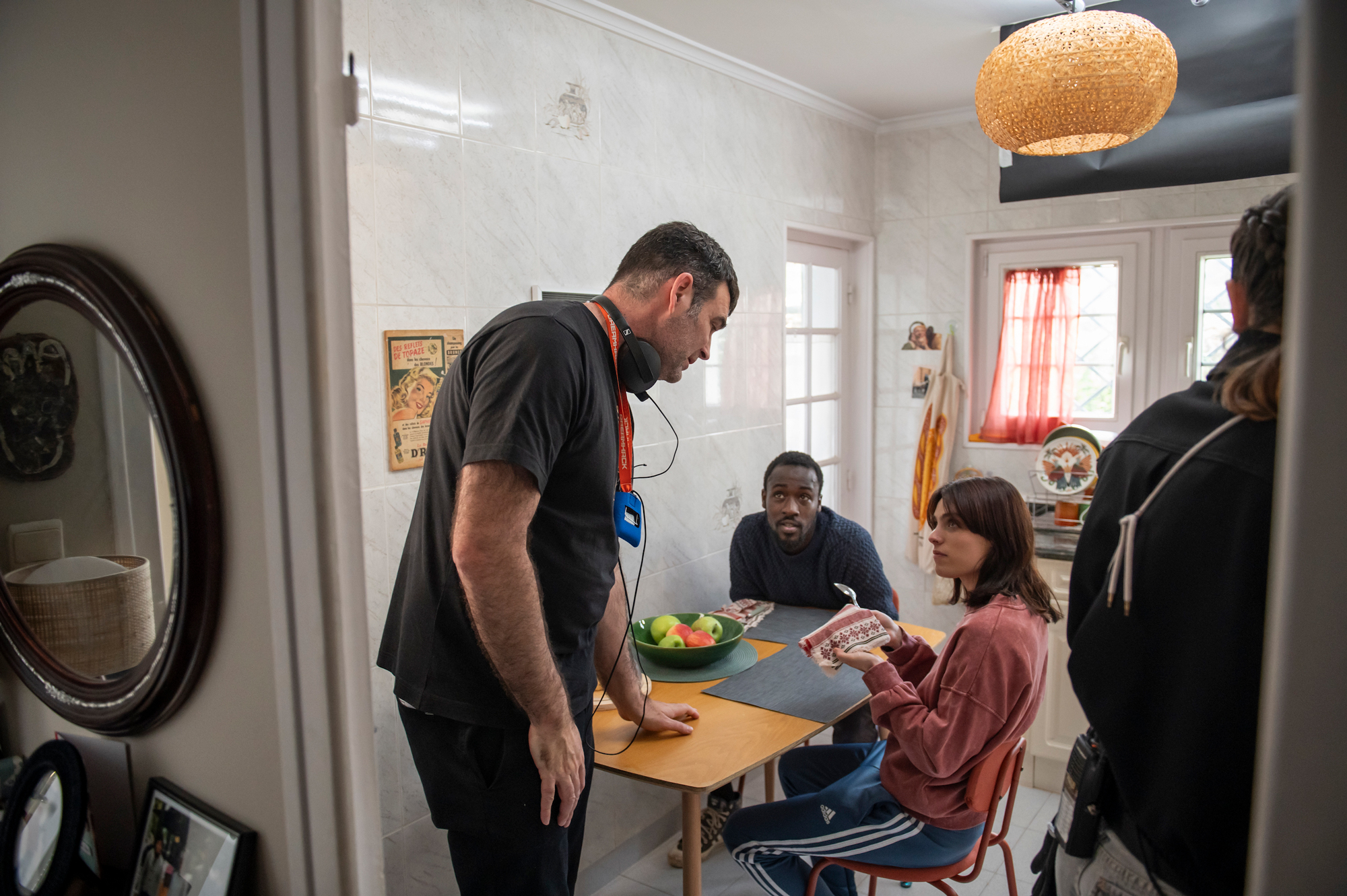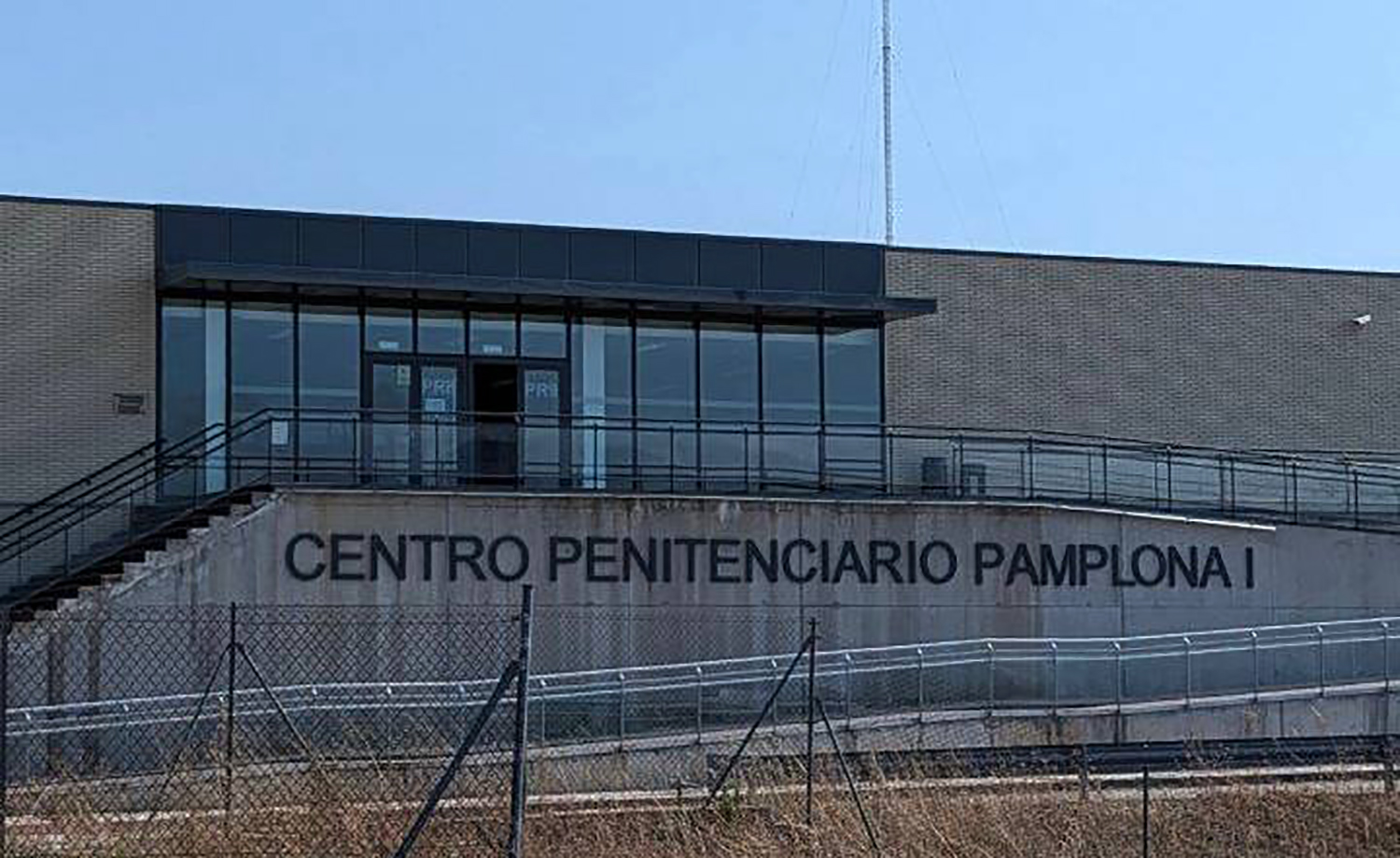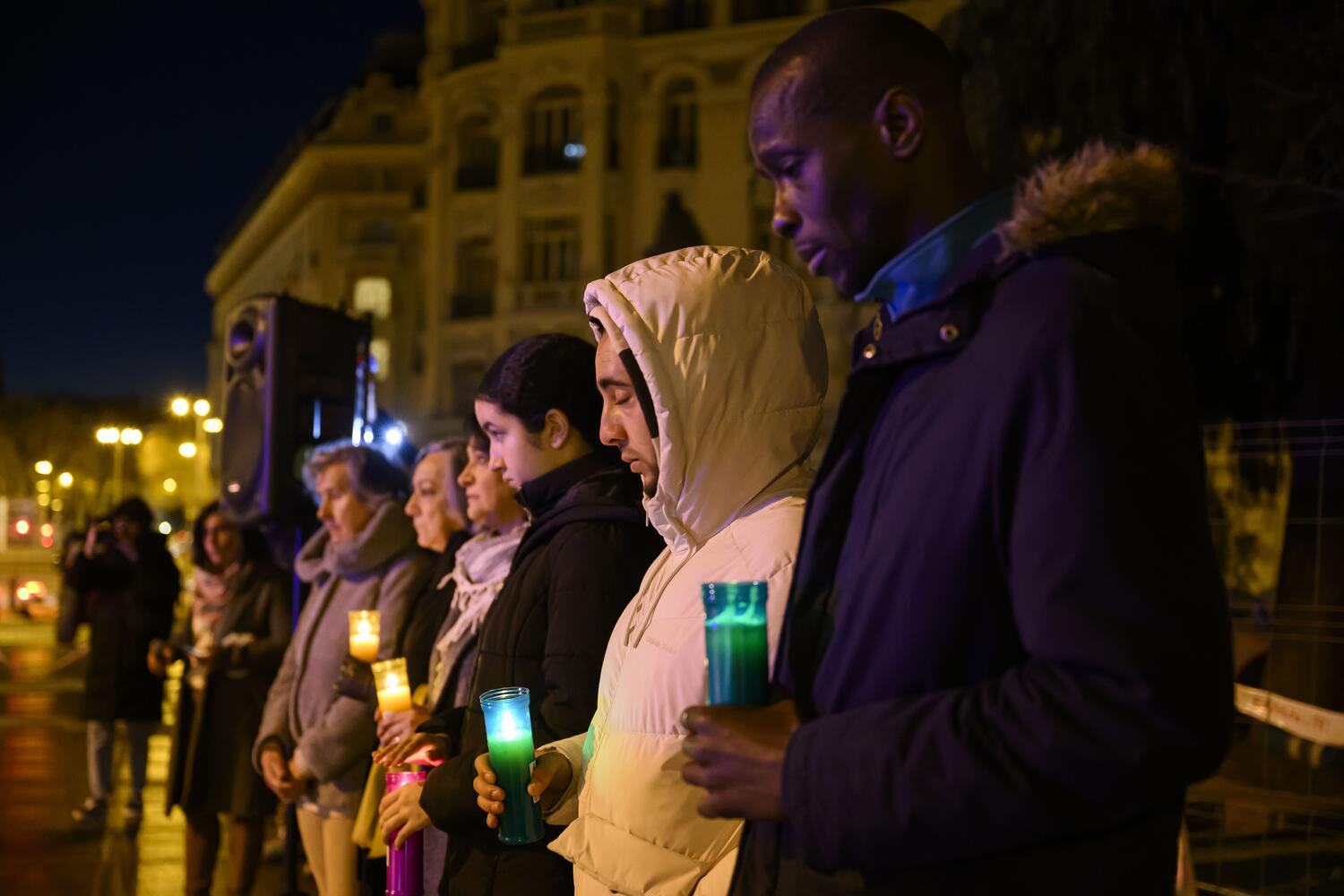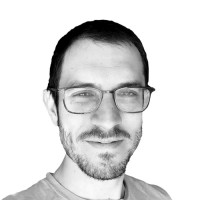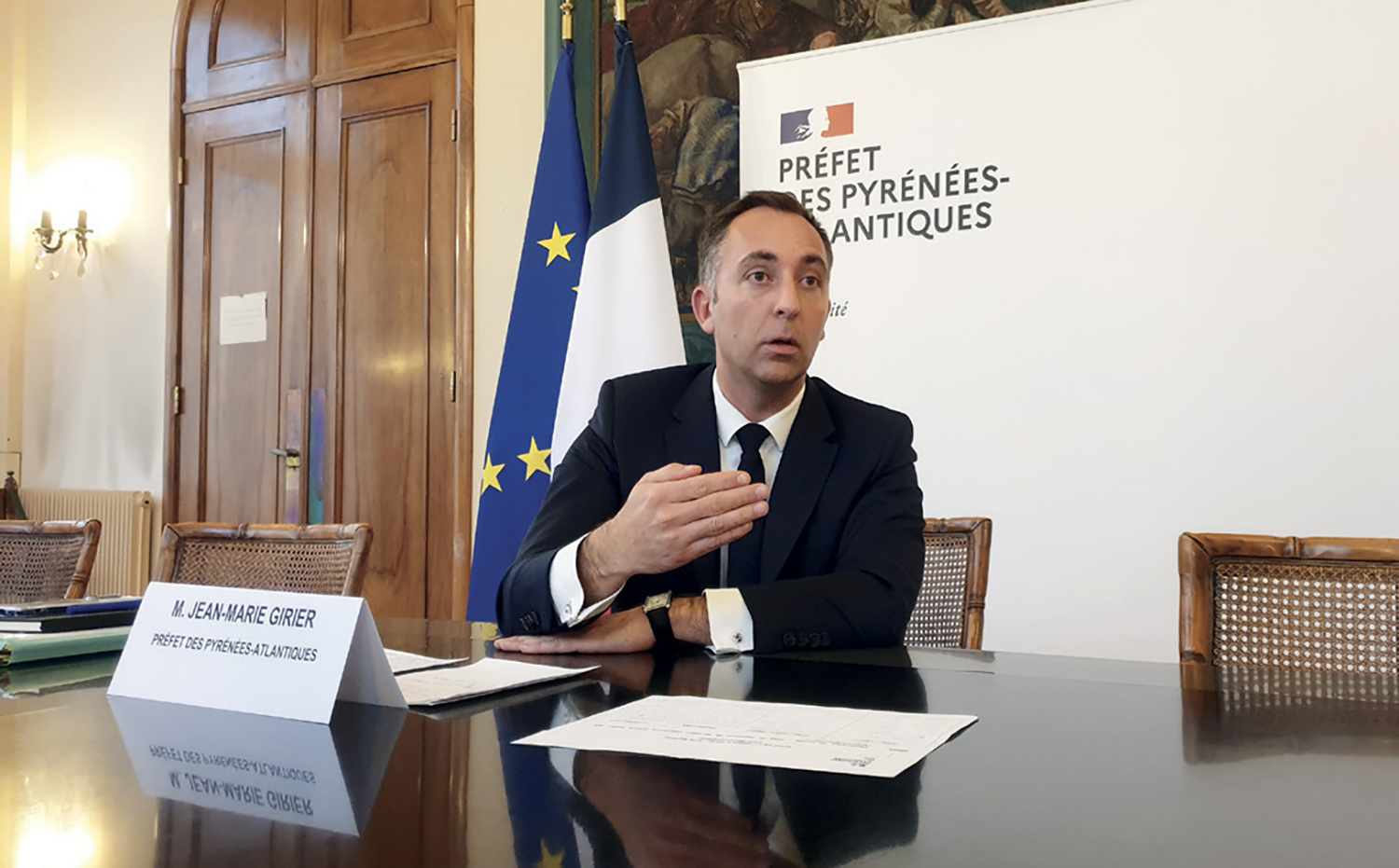"In the Villavesa my next seat is always empty"
- At the age of 16, he left his people and his family and got into a skating shop in search of the dream of Europe. Before arriving in Pamplona it was already clear that he would have to learn and work more than many of his older adults. In addition to language and profession, your young person has quickly learned the communication code of people here. In 2019 they awarded him the Youth Prize of Navarra, in recognition of the young immigrants who come alone.
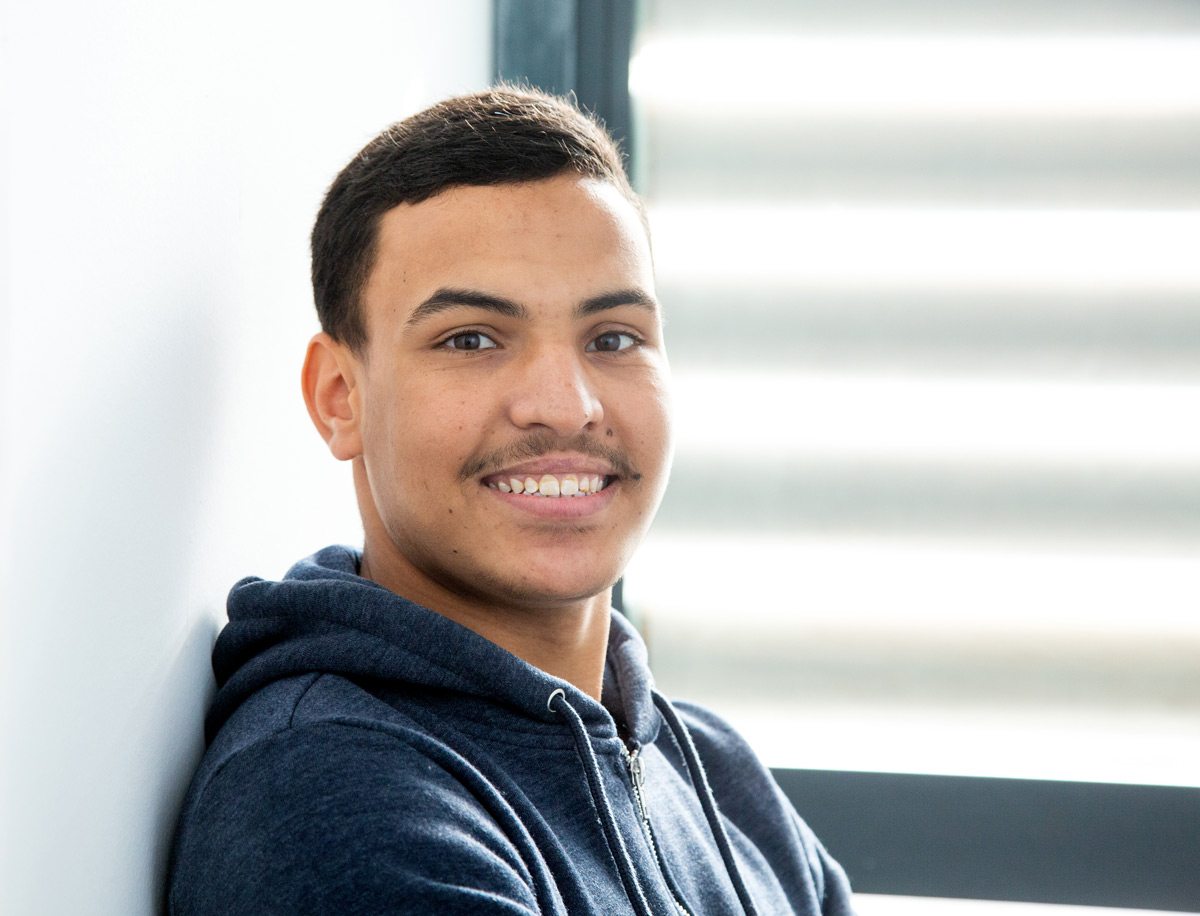
Goizez Elektrizitatea eta elektronikako lanbide heziketako bigarren maila ikasten ari da Etxabakoitz Eskola Tailerrean. Arratsaldez enpresa batean lan egiten du matxuratzen diren makinak konpontzen. 16 urterekin iritsi zen Iruñera, bere herria –Todra– eta familia utzi eta Gibraltargo itsasartea patera batean gurutzatu ondoren. SEI Elkarteko kidea da (Kulturarteko Giza eta Hezkuntzarako Zerbitzua), eta boluntario gisa aritu da. 2019an Nafarroako Gazteriaren Saria jaso zuen.
What is your country of origin like?
Todra is a town of 4,000 inhabitants. The northern part of the region is known for the large number of people who go to climb in winter. It rains very little, but there are very nice landscapes.
Why did you decide to leave?
She was studying and had a normal life, but she saw that a lot of people didn't find work after school. That is why I told my father that I had to go to Spain, as many of my friends have done. A lot of people have come from my village, at least 90 young people have.
At first neither my father nor my mother wanted me to leave. I spent many months arguing, and when I finished fourth of that, my father told me I wouldn't say no again. He didn't tell me it was, but he didn't prohibit me. They finally abandoned me.
You have five sisters. Do you not intend to come?
No. That is unthinkable. In northern Morocco there are girls who decide to come, but in my village they do not. They get married when they finish their studies and they're there.
What did your friends tell you that came before you?
At first it costs a little bit to learn the language, to find a place to study, to find a place to live... but if you learn little by little and learn habits, you also go ahead. My best friend was two months earlier in Barcelona and told me everything.
Did you find what you expected?
No. Not everything. I was hoping to find a place to learn when I got here and be able to choose what I wanted to learn. But it didn't. They took me to study electricity, and I wanted mechanics. The truth is, I love it a lot now, but at first I had a bad time.
What was the journey like?
I left the city and went by bus to Tangier. There I waited three days, sleeping in the street and when I was told that the journey was ready I gave money to the trafficker. I paid him EUR 4,000 in two cents. My father has had to do a great job to get this fortune. In the last season, I was working at a company, but now it's been closed by COVID-19, so now it doesn't work and we had to deliver the savings of a lifetime to a trafficker. In a five-meter skate we entered 35 people ginen.Tangerretik at four in the morning. Around five in the afternoon they rescued us and took us to La Línea. It was a terrible cold at night and we didn't have food or water. It was very hard. In addition to endangering your life, you must pay a lot of money. Fortunately, we all came alive to our patera.

And when you get to the peninsula?
They took me to a juvenile facility. There were a lot of people. We slept on the ground. The three days I was there were terrible. Then I called an uncle of mine who lives in Tudela and came to look for me. I was with them for a week and then he brought me to Pamplona. She took me to a police station at the Foral Police and we told them she was a minor and she had nothing. Then I was taken to the reception centre in Ilundáin and three days later to the Argarai Children's Centre. After two months there, I was sent to a Barañain apartment with three other boys, until I turned 18 in April. Then all the protection was over and I had to look for accommodation on my own. Now I'm in a shared floor room.
Don't you have institutional support anymore?
That's right. You stay out of the program at 18 years old. Now I live alone. I have contacts with the social services and with the Sei association. I take part in weekend activities and departures and before I started working as a volunteer to help other young people, but now I don't have time. I have a very good relationship with the educators, and I can call them. For example, they help me renew the papers. Educators benefit me because they want, because they have no obligation to help me.
Change is very hard, from one day to the next, and if you don't have savings, you'll have a really bad time. You can apply for guaranteed income, but it takes many months to get there.
What about documentation?
I came without anything and it was very hard for them to send my passport through Morocco. A year and a month. I went twenty times to the Moroccan Consulate in Bilbao. Once I got the passport, I went to the foreign affairs office to apply for the Foreign Identity Number (NIE) and got it six months later. I have to renew it every year. Fortunately, I was given this residence and also with a work permit, but it's not common. That's why I found work.
And that's why? In March,
they changed the law for coronavirus and since then they give it. In closing the borders, particularly as far as agriculture is concerned, workers were needed and that is why the minors we were already here started to be given permission to work in any sector. This is an exceptional measure.
However, the system is poorly organised. When you go to a company to ask for a job they ask you for a work permit, but to get it or renew it you need a one-year full-time contract in a company. How does it do that? Without authorization there is no contract and without a contract there is no authorization. It's a vicious circle.
I'm fine now. In the morning I am taking the second Vocational Training course and in the afternoon I have part-time work in a company to repair the machines that are broken.
"Now we are two and three who seek apartment to live together and nobody wants us to rent. The theme of accommodation is very complicated”
The only solution for some young people is to apply for a guaranteed income?
Yes, but we generally think that's not for us. That's for a family that can't work, for example. We want work. Thank God, we have the strength and the desire to work.
Many of my friends are in a difficult situation: if they have a residence permit yes, but not a job and they are going through very badly. They keep learning, but many want to stop learning. They want work and they want money.
What did it mean for you to receive the Navarra Youth Prize?
I didn't understand it very well at first. It was a very special moment for me and my family as well. Then I sent them all the photos and videos. They were happy and proud. They chose me, but they're many and better than me. There are many prejudices about immigrant minors and the prize can be used to eliminate them.
Do you feel rejected?
Yes, many times. When I greet people at the door of the house and they don't respond or at the villavesa [on the bus] whenever my seat next to me is always empty, for example. People prefer to be standing, rather than sitting next to you, and that hurts. Now you can look more optimistic about the coronavirus and think it's because we're all afraid to contaminate it.
Is the MENA or severe label of the immigrant child?
Great. We seem to come to steal, to kill and to do everything wrong, but we come with the intention of improving our future and helping our families.
Being different, having another language, another color and another religion makes you suspicious and people reject you. That's more noticeable among people of an age. Young people are more open.
Some say that we come to take away the work, but it has to be said that we take the work that they do not want. We just want work, whatever it is. Anyway, if you're here forever and someone who comes from the outside two months ago takes your job away, I'm not very clear who's the culprit. This is not normal. It is also true that some accept any work at any price. I am not in favour of that, but I understand that some people do it because they need it a lot.
What can be done about this?
I think it is very important for us to learn habits and codes here, for example. For many young people who come from North Africa, for example, it costs a lot of that. They're very serious about strangers. We, in general, at home have always been told that if you're talking to an older person than you, you have to step across your arms to show respect and look seriously at you. That's why people here often think that those young people are angry and it's not. The only thing you hear. Sometimes, behind these forms of outrage there is sadness or other emotions.
Are you talking about these issues?
No. Studies, work -- yes, but not too many issues, and it's important. You realize this over time.
What is your life like? Do you have friends?
Yes, many. I have friends here and outside. It's very difficult to find people here, but it's like a SEI family, and thanks to them we also have the opportunity to meet people here. And I also have friends from the class. On the weekend we sometimes stop to catch something or turn around. With a friend, I'm going to ride a bike many times, to the mountain and get to know the places. In Navarre there are very nice landscapes. With SEI, we went two or three times to the mountain before the pandemic. It's very useful to make us feel the love and affection of people. I don't usually walk many times at night and I'd rather go day.
I too like sport very much. I ran through the fences in the Hiru Herri group and there I also met a lot of people.
Are you religious?
Yes. I don't drink alcohol, I don't smoke, I don't take drugs, I don't eat pork. I don't like alcohol, it's not just religion.
I pray five times a day and on Fridays I go to St. George's mosque, when I have time. Every time I spend 5-10 minutes. What I do is read the Koran, do some gestures, reflect and ask Allah for things. I ask you to do everything right and to see my family soon. I haven't seen them for two years. Now with the pandemic is very difficult, but if it gets better I would like to go in summer.
Meanwhile, what relationship do you have with your family?
Video calls, by phone... three or four times a week.
Do you also tell them bad things?
We have above all good things. We're also talking about the bad guys, but taking away importance, saying they'll happen.
So if we tell young people that we're wrong, some people think you're saying it because you don't want them to come.
How are you the same? We are
very proud to be the same. Culture is very different. We have our own flag and our own language. At school, I studied Arabic and French. My mother doesn't know Arabic. Nobody knows how to read or write through the Amazon. We've never learned. Berbers are the majority, but the government is Arab and they do not respect us. January 13 was the new year of the Berbers, but the government banned all celebrations.

"When you are going to ask for work, you are asked for a work permit, but to get it or renew it you need a one-year full-time contract in a company. How does it do it?”
What future do you want? At the
moment I would like to be here in Pamplona. Continue learning and working on it tiempo.Ahora we are developing a project with the association Transpirenaica Social Solidaria for the coexistence between young immigrants and the elderly.
Three boys and one educator participate in the program The Challenge of the Future at the state level and among 25 teams we win our project. We have recently presented the project in the Government of Navarra and we are waiting for your answer. I would very much like to live and help with an older person.
There are also a lot of people who don't want to rent us a floor or a room. Now two people and three are looking for a flat to live together and no one wants to rent us. The issue of accommodation is very complicated.
How do you see young people here?It makes me sad to
see that there are people who do not take advantage of youth to study and achieve a better future. If your parents let you do what you want and give you money to live like this, it's normal for this to happen. The future must be tackled. I believe that we should not hide behind the parents or the family. You have to go out and face it. You have to think that your parents won't always be with you and that only the day will come when you'll have to adapt. You’ll have to earn money, work and live on your own, without anyone’s help. That is why we need to gain experience.
And with the intention of learning Basque?
Yes! Be Amazig, Arabic and French and now I would like to learn Basque. I love sound and how they speak. Before I came here I didn't even know that there was Euskera. My first contact was with language through my educator Lorea, who is also learning.
HUNGER, OTHER VIRUS “The
pandemic is getting a lot of attention because it is affecting us all, but there is another virus that is killing more people. It's called Hunger and its vaccine is food, but people are still starving to death. Hunger and disease in Africa do not reach Western societies, making it a blind eye.”
Aljeriatik datoz Mohamed eta Said [izenak asmatuak dira], herri beretik. “Txiki-txikitatik ezagutzen dugu elkar, eskolatik”. Ibilbide ezberdinak egin arren, egun, elkarrekin bizi dira Donostian, kale egoeran. Manteoko etxoletan bizi ziren, joan den astean Poliziak... [+]
Kritika artean abiatu dira Gasteizko Arana klinika zena Nazioarteko Babes Harrera Zentro bilakatzeko obrak. Ez auzokideak, ez errefuxiatuekin lan egiten duten gobernuz kanpoko erakundeak, ez PSEz bestelako alderdi politikoak ez daude ados proiektuarekin: makrozentroen ordez,... [+]
Europako Batzordeak lege-proiektu berri bat aurkeztu du asteartean. Dokumenturik gabeko pertsonak jatorrizko herrialdeetara edo igarotze-herrialdeetara deportatzeko prozesua areagotzea eta azkartzea helburua du.
Harrera-herri euskaldun nola izan gaitezkeen galdetu zion Leire Amenabarrek bere buruari eta parean zituenei iaz, Gasteizen, harrera-hizkuntzari buruzko jardunaldietan, eta galdera horrexetan sakontzeko elkartu gara berarekin hilabete batzuk geroago. Amenabarrek argi du... [+]
“Bi pertsona mota daude munduan: euskaldunak, batetik, eta euskaldunak izan nahiko luketenak, bestetik”. Gaztea zela, Mary Kim Laragan-Urangak maiz entzuten omen zuen horrelako zerbait, Idahon (AEBak), hain zuzen. Ameriketan jaio, hazi, hezi eta bizi izandakoak 70... [+]
Aurrekoan, ustezko ezkertiar bati entzun nion esaten Euskal Herrian dagoeneko populazioaren %20 atzerritarra zela. Eta horrek euskal nortasuna, hizkuntza eta kultura arriskuan jartzen zituela. Azpimarratzen zuen migrazio masifikatua zela arazoa, masifikazioak zailtzen baitu... [+]
Hamasei migrante atxilotu zituzten otsailaren 6an Baionan, etorkinen eskubideen aldeko elkarteek salatu dutenez. Dirudienez, Baionako prokuradoreak eman zuen agindua. Operazioa autobus geltokiaren eta Pausa harrera zentroaren artean gauzatu zuen poliziak, tartean, adingabekoak... [+]









